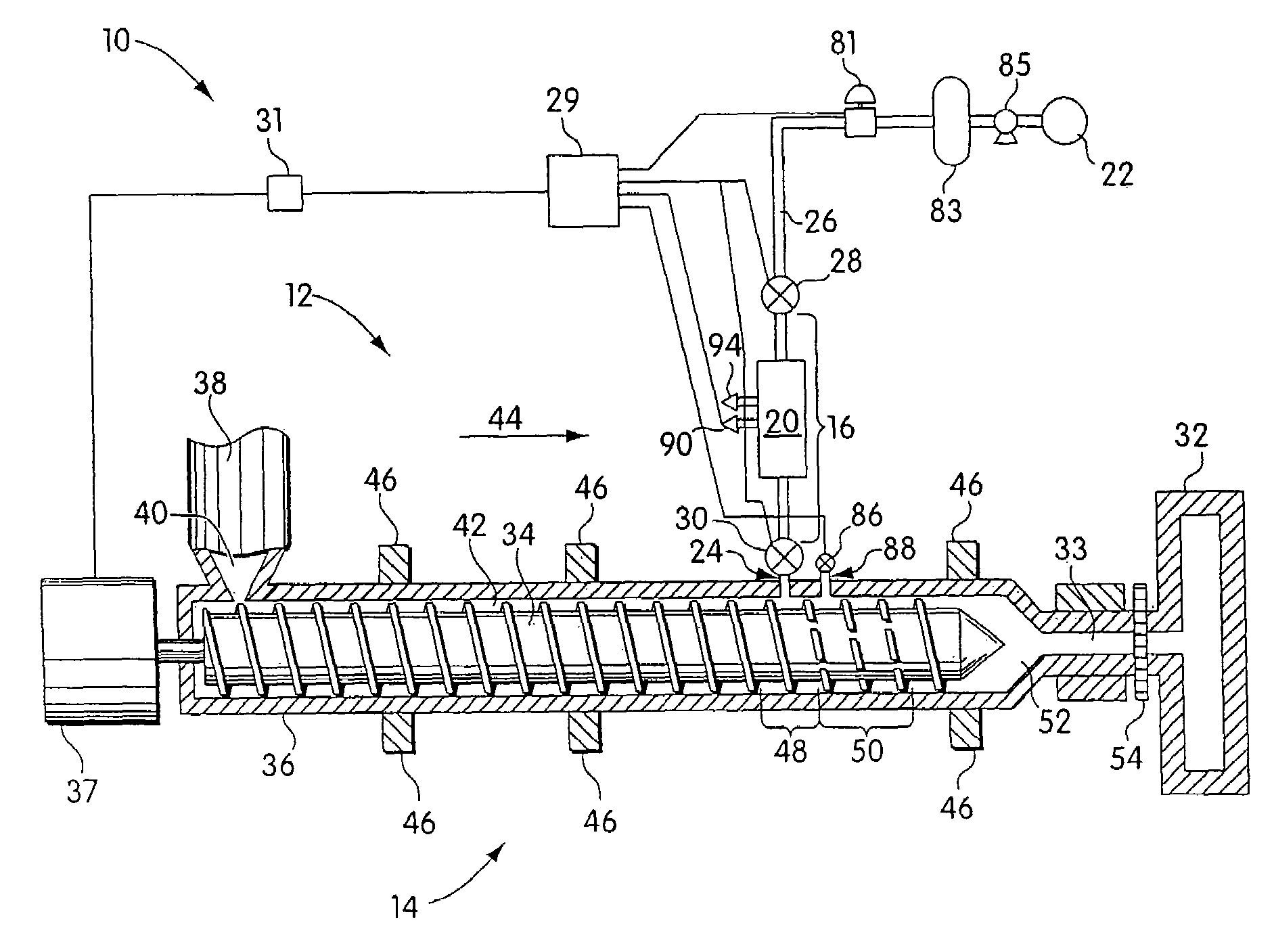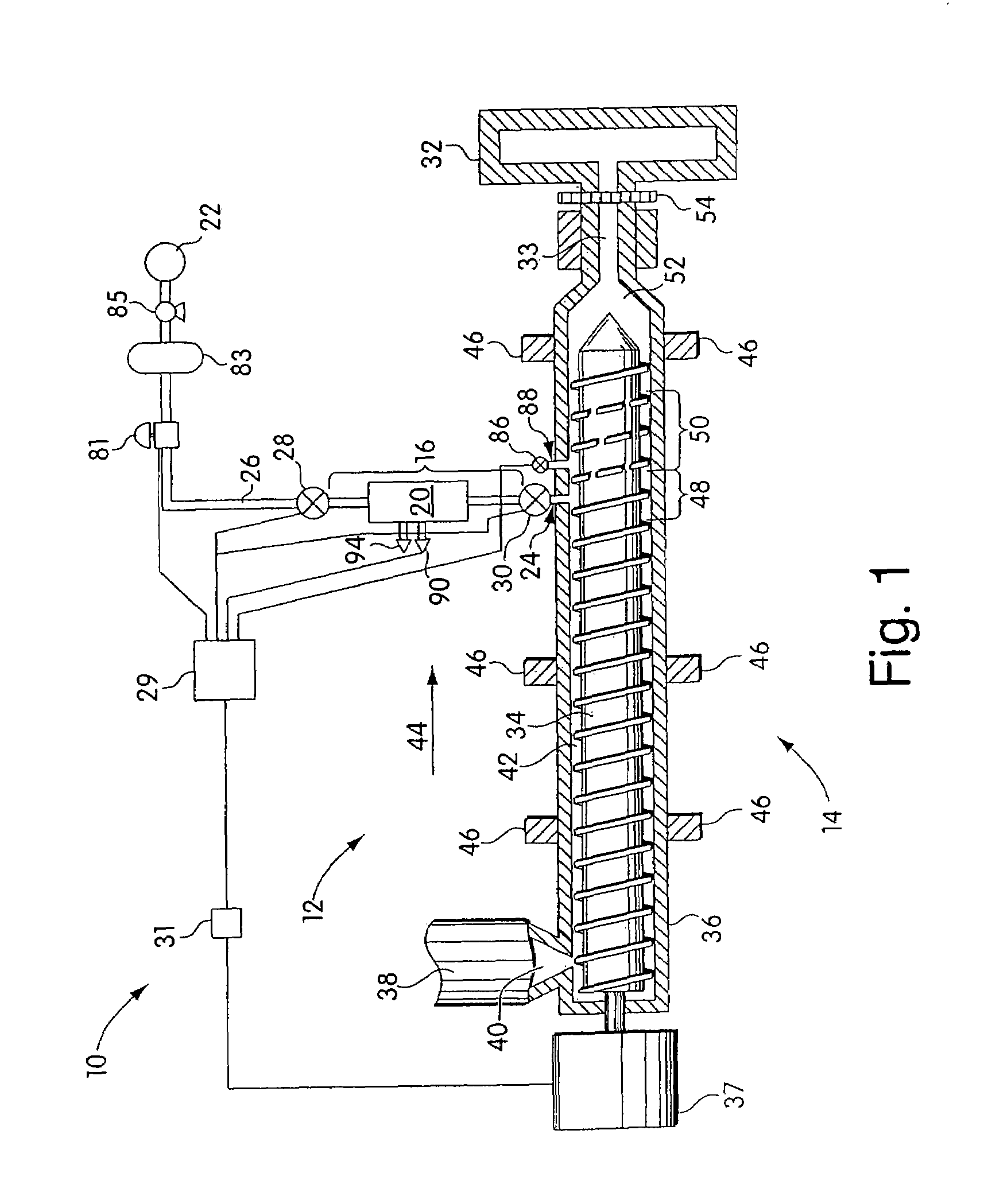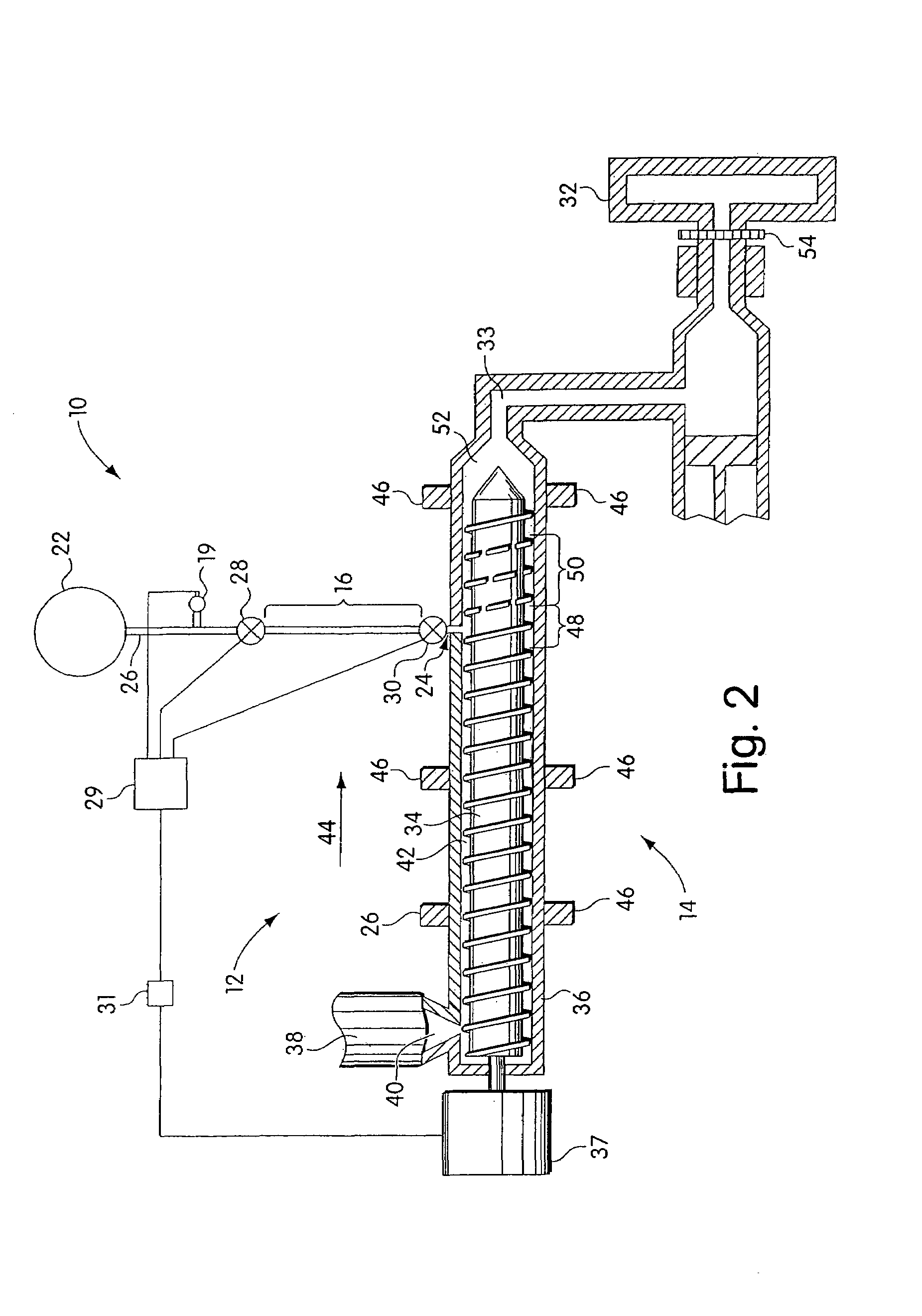Blowing agent introduction systems and methods
a technology of blowing agent and introduction system, which is applied in the direction of thin material processing, transportation and packaging, etc., can solve the problems of discontinuous processing techniques such as injection molding and blow molding, lack of control, and uneven distribution of blowing agent in polymeric materials
- Summary
- Abstract
- Description
- Claims
- Application Information
AI Technical Summary
Benefits of technology
Problems solved by technology
Method used
Image
Examples
example 1
[0084]The example illustrates the use of one embodiment of the invention.
[0085]The injection molding machine used was a 55-ton machine having a 20 mm screw. A blowing agent introduction system was connected to the injection molding machine. The blowing agent introduction system included an inlet valve, an outlet valve which was incorporated into a blowing agent injector assembly, and a specific length of conduit to establish the accumulator volume in which the charge or dose of the blowing agent was accumulated prior to introduction into the polymer melt, as described below. The pressure supplied to the accumulator volume was monitored and controlled using a back-pressure regulator on a T-shaped portion of the conduit with an outlet vented to air. The temperature of the tubing was measured using a handheld surface thermocouple device.
[0086]The accumulator volume was calculated as the sum of the injector assembly volume, the inlet valve volume downstream of the shut-off valve seat, a...
example 2
[0093]This is an example of an embodiment of the invention using a lower dosing rate of blowing agent.
[0094]Process parameters in the apparatus in this example were the same as that of Example 1, but the nitrogen pressure in the accumulator volume was set to 2475 psi with a polymer melt pressure of 2350 psi. The calculated amount of nitrogen delivered was approximately 3.8 mg, and the temperature was about 250° F. The system parameters were not changed during the run, and the parts were consistently produced for approximately two hours.
example 3
[0095]The example illustrates the use of another embodiment of the invention. In particular, this example illustrates the use of the blowing agent introduction system in connection with a process where the total part weight required a small percentage of the stroke of the machine. In this example, the stroke required was about 7% of the total machine capacity. Typical blowing agent introduction systems cannot be easily operated with consistency at less than 15% of the machine stroke capacity.
[0096]The injection molding machine used was a 88-ton machine having a 30 mm screw. The injection molding machine was connected to the blowing agent injection assembly described in Example 1.
[0097]The mold in the injection-molding machine was used to produce a U-shaped part having a solid part weight of 6.5 g. The mold had two cavities which were connected by a centered, cold sprue. The material used was a glass-filled Nylon 6.
[0098]Using an equation for the density of nitrogen as a function of ...
PUM
| Property | Measurement | Unit |
|---|---|---|
| Time | aaaaa | aaaaa |
| Pressure | aaaaa | aaaaa |
| Pressure | aaaaa | aaaaa |
Abstract
Description
Claims
Application Information
 Login to View More
Login to View More - R&D
- Intellectual Property
- Life Sciences
- Materials
- Tech Scout
- Unparalleled Data Quality
- Higher Quality Content
- 60% Fewer Hallucinations
Browse by: Latest US Patents, China's latest patents, Technical Efficacy Thesaurus, Application Domain, Technology Topic, Popular Technical Reports.
© 2025 PatSnap. All rights reserved.Legal|Privacy policy|Modern Slavery Act Transparency Statement|Sitemap|About US| Contact US: help@patsnap.com



